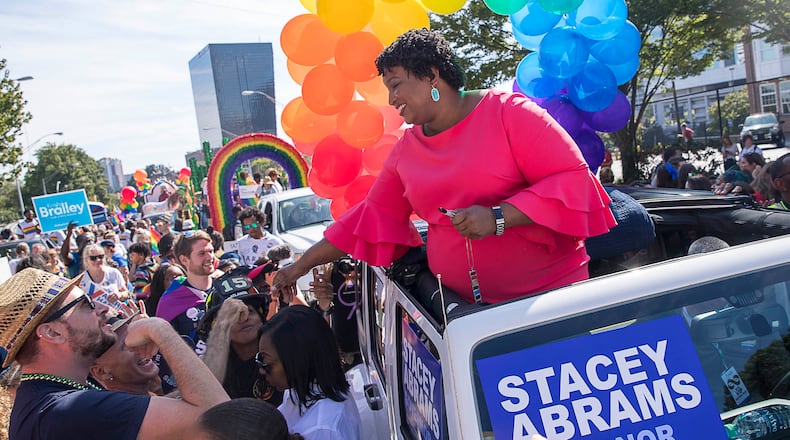In 2018, Stacey Abrams was the first Georgia gubernatorial nominee to march the Atlanta Pride Parade. In 2019, she will be the grand marshal of the event.
The Democrat released a video Friday thanking the LGBTQ community for the honor – and took a shot at Republican Gov. Brian Kemp for supporting a "religious liberty" measure.
“We have an administration that is making life difficult for families wishing to adopt and patriots wishing to serve,” she said. “And we have a man in Georgia governor’s mansion who still wants to sign discrimination into law.
Her focus on the event during the gubernatorial race underscored a shift in Georgia politics as Democrats increasingly embraced LGBTQ equality to contrast themselves with Republicans ahead of the midterms.
Other statewide Democrats have embraced gay rights, for certain, but didn't put it at the heart of their campaigns. The U.S. Supreme Court decision legalizing gay marriage and shifting political views on LGBTQ rights has helped cement a new Democratic approach.
Much of the LGBTQ discourse in last year’s election revolved around the “religious liberty” legislation, a debate that has dramatically escalated since the last midterm vote in 2014.
Gov. Nathan Deal bucked his party in 2016 by vetoing a version of the bill, and some conservatives have vowed to revive it. In the runup to the GOP primary, Kemp and most of the other contenders for governor vowed to sign the measure into law.
He and other supporters see it as a noncontroversial way to defend against what they view as a siege on Christian values and provide more legal protection to the faith-based. Opponents argue it amounts to legalized discrimination and warn of boycotts and other economic fallout if it's adopted.
Seeking to tamp down the controversy, Kemp said in August he would veto any legislation that veers from a federal version of the bill signed by President Bill Clinton. He's maintained his support for the legislation, which failed to gain traction this year.
About the Author
Keep Reading
The Latest
Featured




